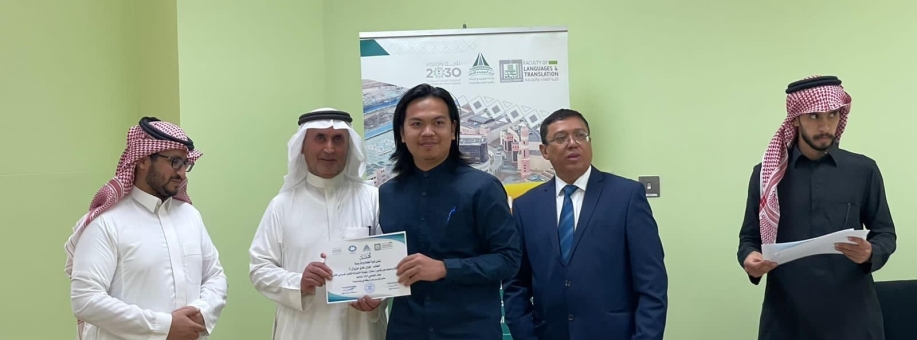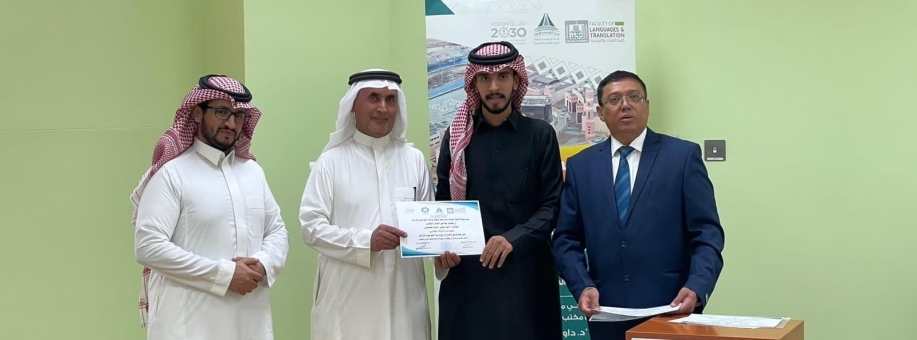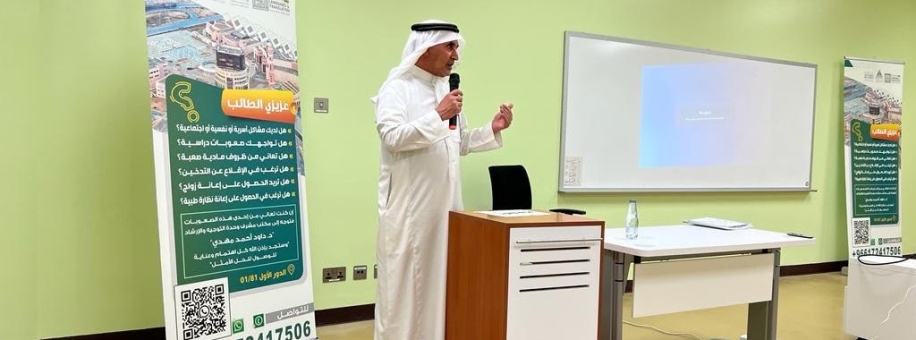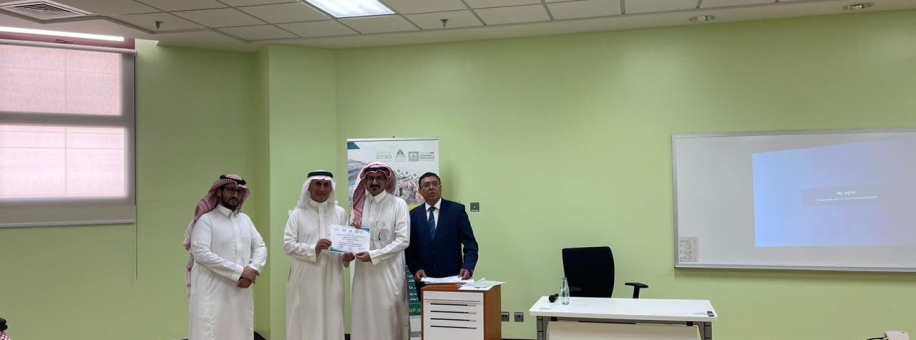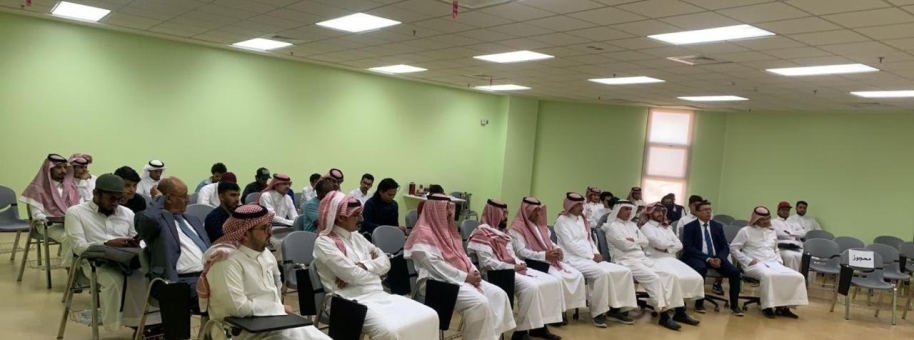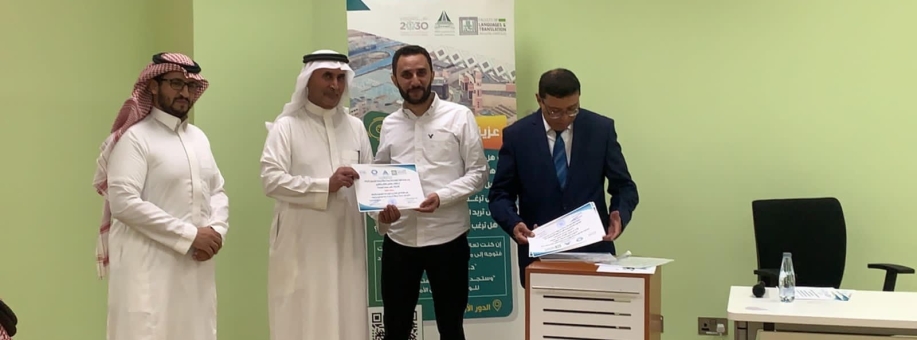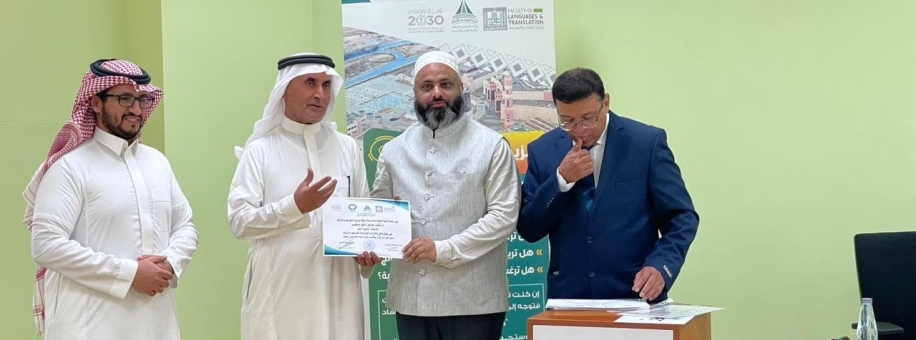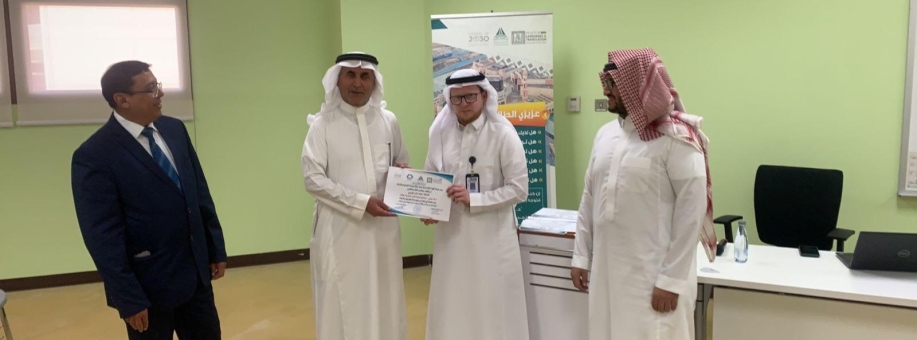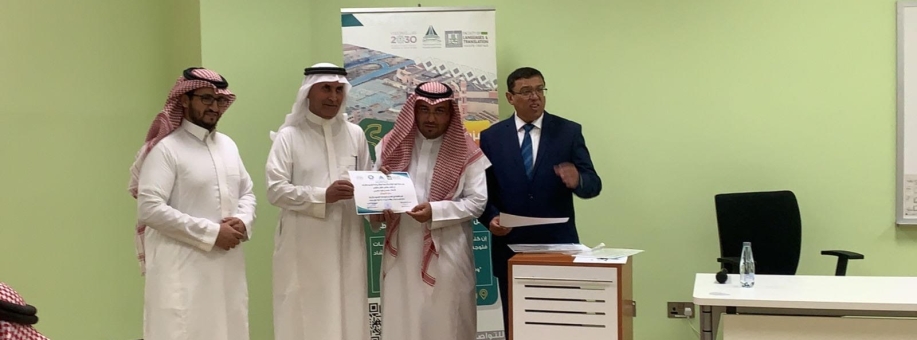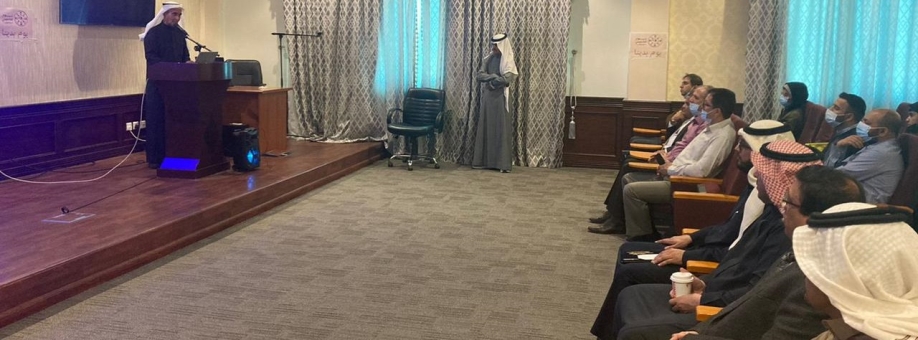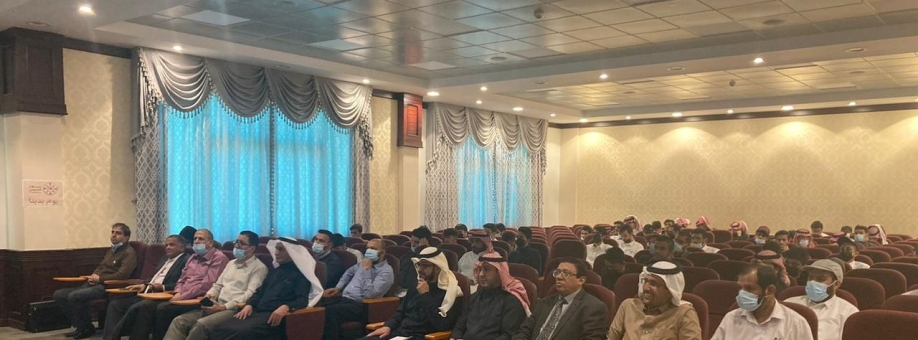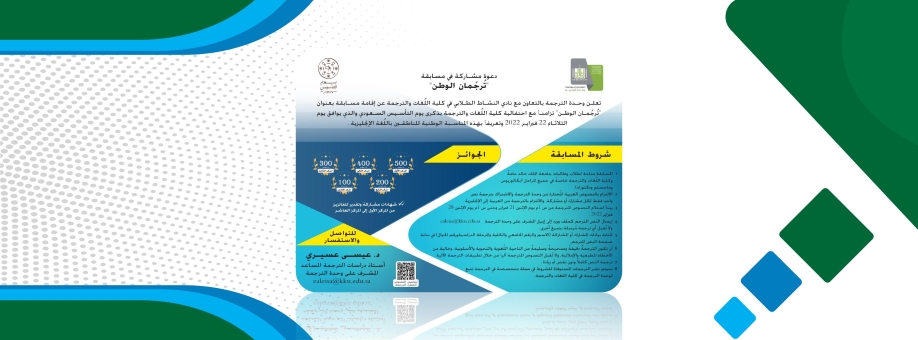GCU Concludes Semester Activities
On October 31, 2022, the Guidance and Counseling Unit (GCU) of King Khalid University held a workshop in collaboration with the Saudi Human Resources Development Fund (Hadaf). The event also included an appreciation ceremony to recognize high-achieving students, dedicated faculty members, and supportive staff. Dean Dr. Abdullah Al-Melhi, Chairman Dr. Ibrahim Alasmari, and GCU Head Dr. Dawood Mahdi led the proceedings.
The event began with Muhammad Jaber Al-Harbi, a career counselor at Hadaf, who introduced the attendees to the various employment support programs offered by Hadaf. Al-Harbi's comprehensive presentation titled "The Art of Dealing with Tests" was particularly well-received by participants for its interactive nature. It motivated students to formulate a plan of action for their upcoming final exams.
Following the informative session, the ceremony recognized students who had attained a cumulative grade point average of 4.5 or higher for the second semester of 1443. The attendees congratulated the high achievers and expressed their best wishes for their continued academic success.
Dr. Mahdi and the leadership team then awarded Muhammad Jaber Al-Harbi, a Hadaf career counselor, with a certificate of appreciation for his insightful presentation. The celebration then shifted to recognize the faculty, notably highlighting the administrative staff's pivotal role in the program's recent milestones. These staff members played a crucial part in the seamless transition to the new campus, skillfully coordinating the logistics and ensuring that every detail, from classroom setups to technology installations, was flawlessly executed. Their proficiency was further demonstrated in the procurement and setup of advanced facilities and equipment, which have significantly elevated the educational experience.
Dean Al-Melhi, acknowledging these contributions, stated, "Your commitment and skill in navigating our move to the new campus, upgrading our facilities, and bringing in state-of-the-art equipment have been crucial. It's this kind of hands-on engagement in strategizing, making critical decisions, and upholding excellence that we aim to foster among all our administrative staff. Beyond the physical enhancements, your support for our international scholarship students, ensuring their seamless transition and academic prosperity, is equally commendable. This comprehensive and engaged approach truly embodies the essence of our team and is the driving force behind our program's success."
The event also paid homage to the current and former GCU ambassadors, celebrating their vital role in fostering the university's legacy through their dedicated service and contributions to GCU's thriving community.
In their closing remarks, Dean Al-Melhi and Dr. Mahdi urged the students to remain diligent and industrious. They motivated high-performing students to maintain their academic excellence and to assist their peers in fostering effective study habits. Their inspirational speech underscored the university's commitment to fostering an environment conducive to the holistic development of its students.

